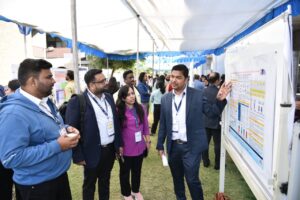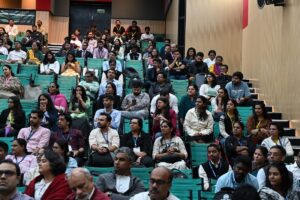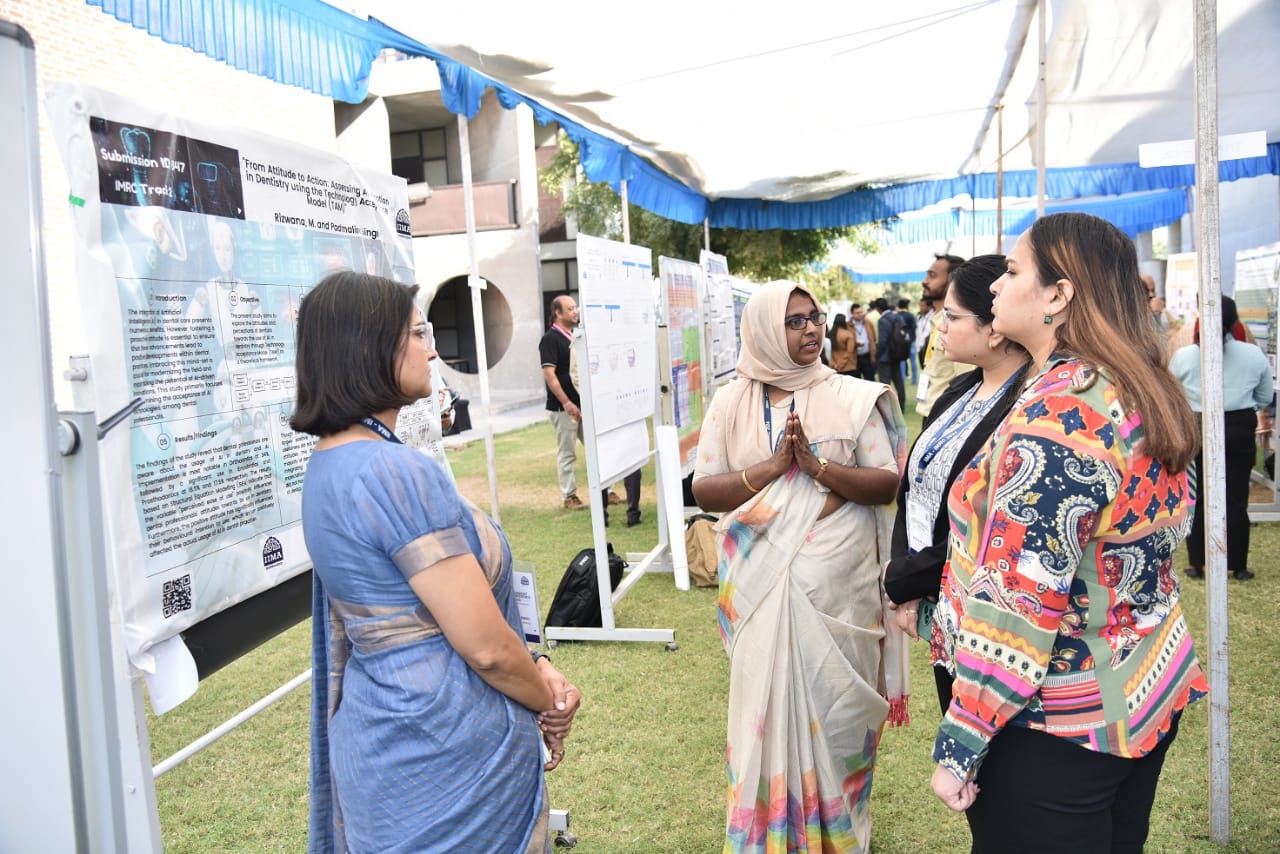Ahmedabad, Dec 10, The Indian Institute of Management Ahmedabad (IIMA) successfully concluded the first edition of the India Management Research Conference (IMRC 2024).
According to a press release issued by IIMA here today The three-day mega event was jointly organised by 10 Research Centres of the Institute on the theme of “Confluence of Growth, Sustainability, and Resilience”. It provided more than 800 attendees, including research scholars, academicians, and industry practitioners, from India and abroad with an exceptional opportunity to network, explore, and discuss diverse research themes that are relevant in the Indian context.
The third day of the conference served as a platform for nearly 80 poster presentations by research scholars on diverse topics such as Export & Adoption of Green Technology in India; Impact of ESG Reporting on Consumer Behaviour in the FMCG Sector in India; CDS: An alternative to Credit Ratings amid Geopolitical Risk; Energy Transition Pathways: Distributed Renewables for Lives and Livelihoods; The Influence of Events and Factors on UPI Adoption among Women in Blue Collar Workforce; Assessing AI Adoption in Density using the Technology Acceptance Model; Enhancing Waste Disposal Practices in Healthcare Settings: The Impact of Nudges; and so on. The session brought together diverse perspectives and sparked new ideas and connections to address contemporary challenges pertaining to management research in the Indian context.
The 11 parallel tracks held several engaging workshops, panel discussions, keynote sessions, and oral presentations. In the ‘Entrepreneurship: Facilitators & Hurdles Related to Scaling Up of Startups’ track, two sessions focused on the theme of ‘Governance for Startups’. The presentations in the track explored the key enablers and barriers shaping India’s dynamic startup ecosystem. The ‘Management in Health Services’ track, an engaging session chaired by Santosh Dixit discussed advancements in healthcare. They also hosted a Panel Discussion on ‘Innovative Models in Healthcare Delivery’. Day 3 in the ‘Gold & Precious Metals: Business and Economic Policies’ track started with two keynote sessions by Mr. Sachin Jain on ‘Gold is the New Gold’: Transforming the Global Gold Industry and by Mr. Pradeep Ramakrishnan on ‘Building India as a Global Market Maker in the Gold Economy: Policies, Progress, and Future Pathways’. The sessions were followed by oral presentations and thematic talks.
The ‘Behavioural Science in Management’ track hosted a keynote address by Dr. Tirthankar Patnaik on ‘Retail Revolution in Indian Financial Markets’. The track also featured paper presentations on finance, marketing, and economics. The ‘Transportation and Logistics’ track organised oral presentations concentrated over four sub-tracks: on ‘Supply chain and Optimization’, ‘Managing Supply Chain Performance’, ‘Smart Mobility’, and ‘Policy and Sustainability’. The Centre for Transportation and Logistics chairs at IIMA, Prof. Debjit Roy and Prof. Sandip Chakrabarti headed the poster presentations ranging over varied themes. The concluding day in the ‘Leadership Research & Practice in the Context of Changes in the World of Work’ track had research presentations by 27 scholars from several management institutes. They also organised a workshop on ‘Moving from Idea to Paper’ by Prof. Balagopal Vissa from INSEAD, Singapore, for capacity building of doctoral scholars. The ‘Data Science and Artificial Intelligence’ track conducted a workshop on ‘Discrete Choice Models, Assortment Optimisation, and Pricing’ by Prof. Sumit Kunnumkal from the Indian School of Business.
The conference culminated with reflections on three transformative days by Professor Bharat Bhasker, Director of IIMA, Professor Debjit Roy, Convenor of the Conference, faculty members, and conference participants from various institutes.
Sharing his thoughts on the first IMRC 2024, Professor Debjit Roy, Institute Chair Professor in the Operations and Decision Sciences area and Convener of IMRC 2024, said, “The India Management Research Conference is probably the first conference that focuses on India-centric research and innovation. The conference inspired scholars and practitioners to work with the right kind of method and maintain rigour in execution to enhance the quality of our research. In the dynamic times that we live in, we have to be ready for newer challenges and prepare ourselves to be more resilient to tackle those challenges. We are delighted to see overwhelming enthusiasm and interest of participants and institutions in taking this vision forward through IMRC year after year.”

